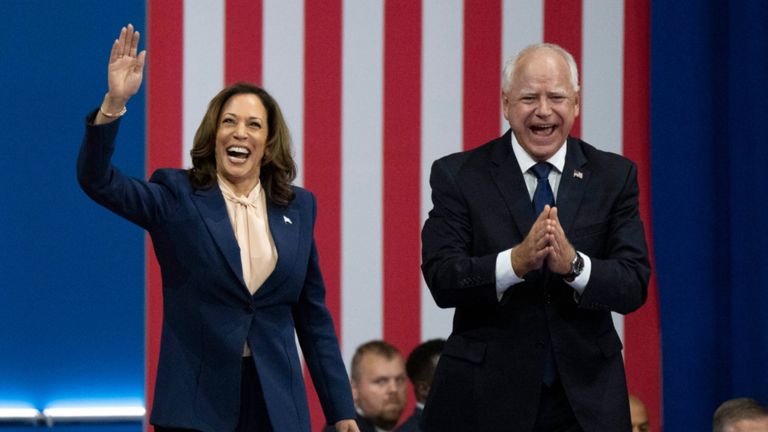A new electoral campaign is becoming the trend across the globe. Politicians are mixing the emotions of love and joy with issues concerning bread and butter to get votes. This is a welcome development at a time when peddling hatred and discrimination has almost become the order of the day in the bitter fight to capture power through the battle of ballot.
In its latest manifestation Tim Walz thanked the US presidential candidate of the Democrat Party Kamala Harris in his first speech after agreeing to become her running mate. Far from trying to match the acrimony and slandering campaign of the Republican candidate Donald Trump and his running mate JD Vance, he is playing on the emotions of the people of his country describing himself and Harris as “joyful warriors” against their opponents who “try and steal the joy.” Trump has launched a virulent attack on Harris for her ready laughter, but the Democrats are trying to capitalise on a new wave of enthusiasm among the young generation following the endorsement of Harris as the Democrat candidate by President Joe Biden. When the contest appeared to be between Trump and Biden, about 41 million first time young voters were showing apathy to the election according to different polls. However, the appearance of Harris in the election arena has greatly changed the mood.
The contrasting emotions being generated by the two contenders are making headlines in the US media. While two Democrat candidates – Harris and Walz – are seeing a window of opportunity in the joyous atmosphere, their rival camp is not deviating from its poll plank of trenchant criticism of Harris for what “she has done to this country,” as Vance said. Trump along with other rightwing populists globally has channelled fear and rage as their main poll campaign material.
Both the contenders are seemingly trying to take advantage of the trend of voters these days being more swayed by emotions than reason. US research suggests that dissatisfaction with politicians is more likely to send white voters to the polls and minority voters to other forms of activism.
In the past, Democrats have tried to answer the hate-campaign of Trump with facts. Issues such as the climate crisis call for a rational debate. But the voters appear to be less interested in them. On the other hand, emotions are having instant appeal to the voters. New research findings bring home the fact that more than anger emotions such as hope, love and joy are striking a chord in the hearts of the electorate.
Luiz Inacio Lula da Silva beat Jair Bolsonaro’s dark vision of Brazil in 2022, while during the recent Lok Sabha polls in India Rahul Gandhi campaigned through the country with a message of love and solidarity with the people irrespective of their religious or caste identities. The appeal seems to have worked well countering the divisive campaign of Prime Minister Narendra Modi who, in the process, lost his parliamentary majority.
But, relying on people’s emotions for electoral success may turn out to be a risky strategy. Urging voters to get happy when they are faced with the stark reality of the livelihood crisis the way Harris and her team are doing may prove counterproductive. It appears Harris herself is alive to the dangers of such campaign pitch. She is tempering the buoyant mood by acknowledging that grocery prices are too high. Trump may benefit if recession hits, which is likely, that will compound the problems of the Democrats and their campaign team.
The Democrats are hoping for the best – but Trump is an aggressive campaigner with his own bag of tricks. The fight looks like it could have a nail-biting finish.
